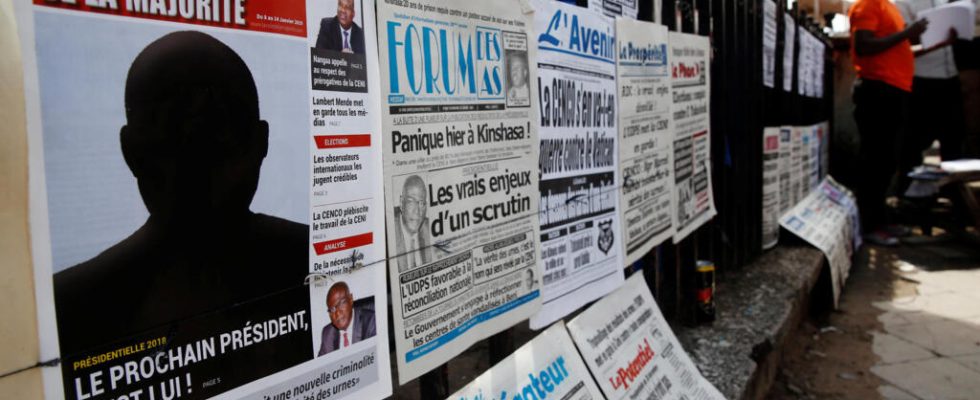On the occasion of the elections in the DRC, we return this week to the media coverage of the conflict in North Kivu and the obstacles that journalists on the ground are forced to face.
At the end of last year, Pascal Boniface, director of the Institute of International and Strategic Relations (IRIS), warned of the invisibility of the conflict in North Kivu and the indifference of the international community which nevertheless cares about the attacks to the sovereignty of States in Europe. This year, this observation has not been denied in France if we are to believe the media monitoring platform Tagaday which identified nearly a million pieces of content related to the war in Ukraine, more than half a million on the Israel-Hamas conflict and only 7,871 on Kivu while the DRC as a whole generated 61,700 articles or contents.
Regarding the elections themselves, it is often the same media that talk about them: RFIFrance 24, TV5 Monde and Young Africabut also The World Africa and from time to time Radio France, Arte, Le Point, Mediapart Or Release.
Read alsoDRC: journalist Stanis Bujakera “serene” and “combative” before the resumption of his trial, according to RSF
Difficult coverage of the conflict
Because of the millions of deaths it has caused since 1998 and the withdrawal of peacekeepers and the permanence of tensions and abuses in the region, French editorial offices rarely send reporters there. Perhaps also because we do not always want to see the role in this destabilization of Rwanda of Paul Kagame who, according to the UN, supports the armed rebellion of the M23. On the Congolese side, North Kivu is according to Reporters Without Borders A ” taboo in the press ” and one ” security problem » with its reprisals, its arrests, its abuses, even after a ceasefire in March.
The press law passed last April did not fundamentally change things. It did guarantee access to public sources, but not those covered by state secrecy. It also introduced a bad faith clause on the publication of allegations disturbing public order and did not put an end to deprivations of liberty for journalists (according to RSF).
There are 7,000 journalists in the DRC, they are often precarious and sometimes adept at “coupage”, which consists of covering an event for remuneration. They must also deal with influencers who work on opinion and spread disinformation, such as that on a possible rapprochement between President Tshisekedi and candidate Denis Mukwege. Likewise, we have seen hate speech on the Internet calling such a candidate a foreign agent or calling for an ethnic war.
Unlike an influencer, remember that a journalist cites his sources, verifies his information and establishes facts.
Read alsoDRC: the Journalists in Danger organization draws up a negative assessment for the press under Félix Tshisekedi
